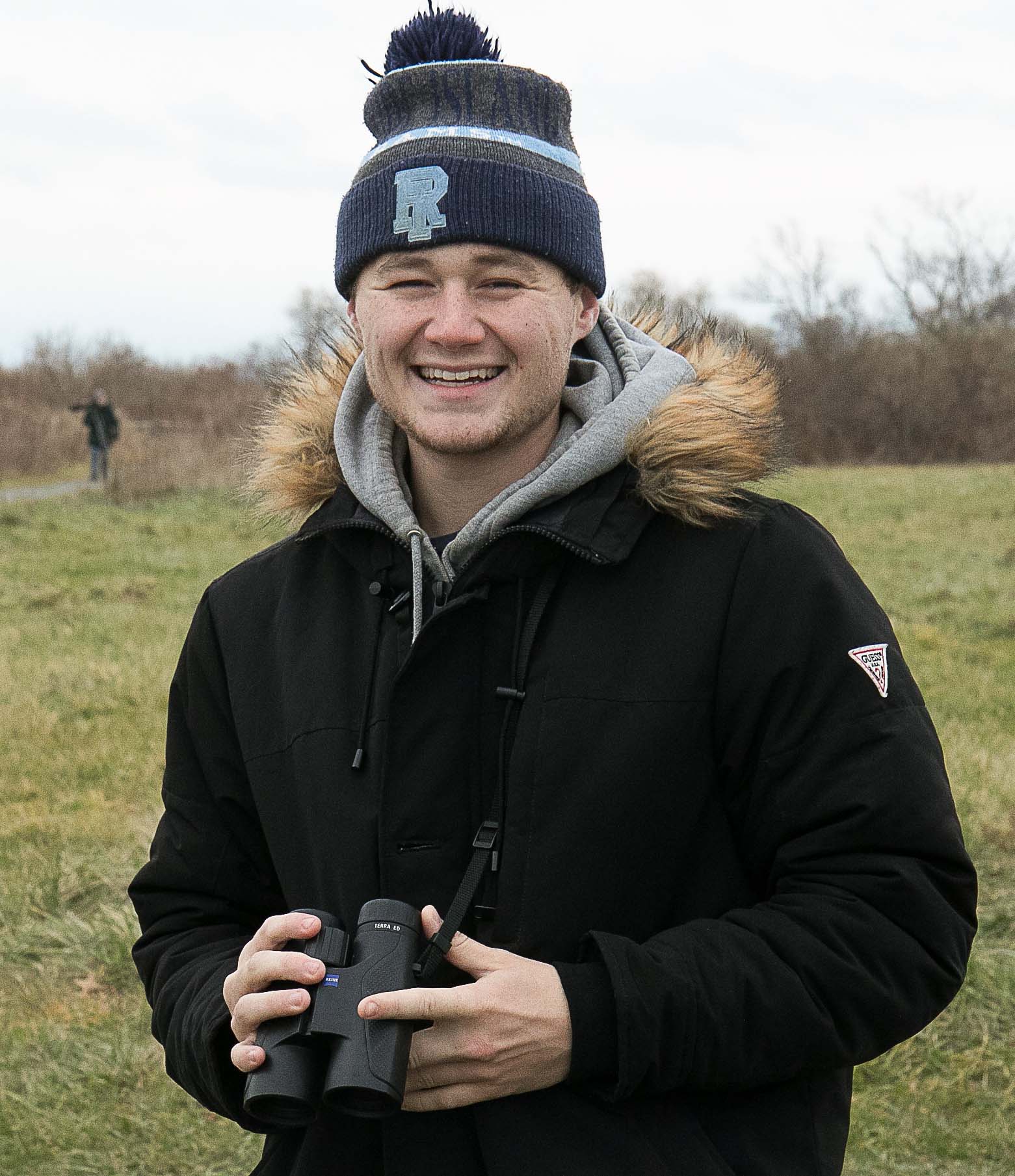Birders flock to Rhode Island to see sharp-tailed sandpiper
URI senior spots Siberia native bird, sharp-tailed sandpiper. PHOTO CREDIT: Peter Paton
University of Rhode Island senior Sam Miller has been “putting names to birds” since he was a kid, but a recent bird he found left him barely able to believe his eyes.
The sharp-tailed sandpiper, which according to Miller is a bird native to Siberia that travels to Australia for the winter, had never been seen in Rhode Island until this past November, when Miller discovered one at the Galilee Bird Sanctuary.
Miller said he could not believe the sighting, which caused many birders — people that travel to see as many species as possible — to travel to Rhode Island in hopes of seeing a sharp-tailed sandpiper with their own eyes.
“It took us a little while to identify it since it was in a marsh and kind of sneaking through the grasses,” he said. “I texted it out to a bunch of people and got their opinions on it, and we pieced it together.”
Miller discovered the bird at “Rarity Round-up,” an event he set up for local birders to search for rare birds in Rhode Island.
“To actually stumble upon something like a sharp-tailed sandpiper, which was definitely a higher magnitude of rarity than anything I was ever expecting, was definitely surprising and really cool,” Miller said.
He decided to hold the event in November of last year because, according to him, November is the best time to find rare birds since it is the first time that many birds migrate.
The discovery made waves among the Rhode Island birding community, which Peter Paton, the chair of the department of natural resource sciences, described as “extremely excited” about Miller’s sighting.
“I was [looking at another area] over near Quonochontaug Pond with two URI grad students,” he said. “We got a text that Sam had seen it so we kind of dropped what we were doing and went over to see his bird because it’s so special.”
Paton, whose studies focus on the conservation of birds and amphibians, said that there are over 200 active birders in Rhode Island, and the vast majority of them traveled to see the sandpiper once they heard the news of Miller’s discovery.
Both Paton and Miller said that the reason the bird was so far from its natural habitat was due to it being disoriented and wasn’t a major cause for concern since it was physiologically capable of making a flight that distance.
“This bird found itself into what would be considered a suitable habitat, and stayed there for about a week or two,” Miller said. “It was eating and foraging effectively and it seemed to be doing okay.”
According to Miller, the bird flew away after a bit longer than a week. During that time many Rhode Island birders visited the site to see the bird for the first time.
Paton said that finding the bird, as well as setting up the event, showed just how mature and skilled Miller is at birding.
“It really shows something about his abilities to understand bird migration,” Paton said. “It’s that level of expertise that you’d normally see out of an exceptional graduate student, not an undergraduate.”
Miller said that in all likelihood, the event will be held again this November, and he hopes it could become an annual event.
“Whether this bird was found or not, the event turned up a lot of other cool birds,” Miller said. “I hope that it continues, and I’m definitely going to try to keep it going as long as I’m in Rhode Island.”





